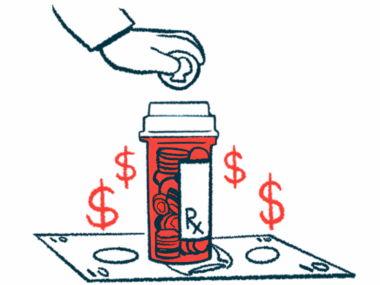Study will test ALX-001’s drug interactions in Parkinson’s disease
Therapy is also being tested as treatment for Alzheimer's disease
Written by |

Allyx Therapeutics has received a $3.3 million grant from the National Institutes of Health (NIH) to initiate a Phase 1 clinical trial to evaluate the interaction of its investigational oral therapy ALX-001 with other medications and assess how the drug can affect patients who take multiple medications.
The grant, part of NIH’s Small Business Innovation Research Commercialization Readiness Pilot Program, will support further research of ALX-001 as a treatment for Parkinson’s and Alzheimer’s disease. In a company press release. Allyx’s co-founder, Tim Siegert, said the grant will help the company move toward commercializing “ALX-001 as a potential first-in-class disease-modifying oral therapy in Alzheimer’s disease and Parkinson’s disease.”
In Parkinson’s disease, dopamine-producing nerve cells are lost, leading to an increase in glutamate signaling, a different brain signaling molecule. Glutamate activity is regulated through receptors such as mGluR5, which has been linked to synapse loss resulting from misfolded proteins. Synapses are structures that enable communication between nerve cells. ALX-001 is able to penetrate the brain and block mGluR5, this way preserving and protecting against synapse loss.
The therapy is being studied in an ongoing Phase 1b clinical trial (NCT06309147) that’s assessing the safety relative to a placebo of administering it for 28 days to Parkinson’s patients, as well as whether it can restore synapses, as measured by dopamine transporter levels in the brain.
Earlier this year, Allyx announced it would advance to Phase 2 clinical development of ALX-001 based on positive preliminary data from its Phase 1b trials.
Testing ALX-001 with caffeine, sedative, cough medicine
Its newly funded Phase 1 (NCT06632990) clinical trial will test ALX-001’s pharmacokinetics, or how a drug moves into, through, and out of the body, with three other compounds.
Healthy participants will take one dose of three known medications — caffeine, the sedative midazolam, and dextromethorphan, a cough medicine marketed as Robitussin, among others — and their blood concentrations will be measured before participants are given ALX-001 for 18 days followed by a second caffeine, midazolam, or dextromethorphan dose. Blood concentrations will be measured again to see if ALX-001 changes how different enzyme proteins in the liver process and clear the compounds. This will help researchers understand how ALX-001 can be administered to patients who take multiple medications.
“The metabolism study funded by this grant will help us to better understand the metabolic profile of ALX-001, which will be important for patient populations with a high likelihood of complex polypharmacy and [coexisting conditions] beyond neurodegenerative diseases,” Siegert said.
The therapy is also being tested for Alzheimer’s disease, which also features synaptic dysfunction and loss. The Phase 1b clinical trial (NCT05804383) is examining synapse restoration, as well as the safety and tolerability of multiple ascending doses of the drug, in early Alzheimer’s disease patients.
With this latest grant, the ALX-001 program has been awarded more than $23 million, with funding coming from previous NIH grants, the U.S. government’s small business innovation research program, the Alzheimer’s Association, and the Michael J. Fox Foundation for Parkinson’s Research.



